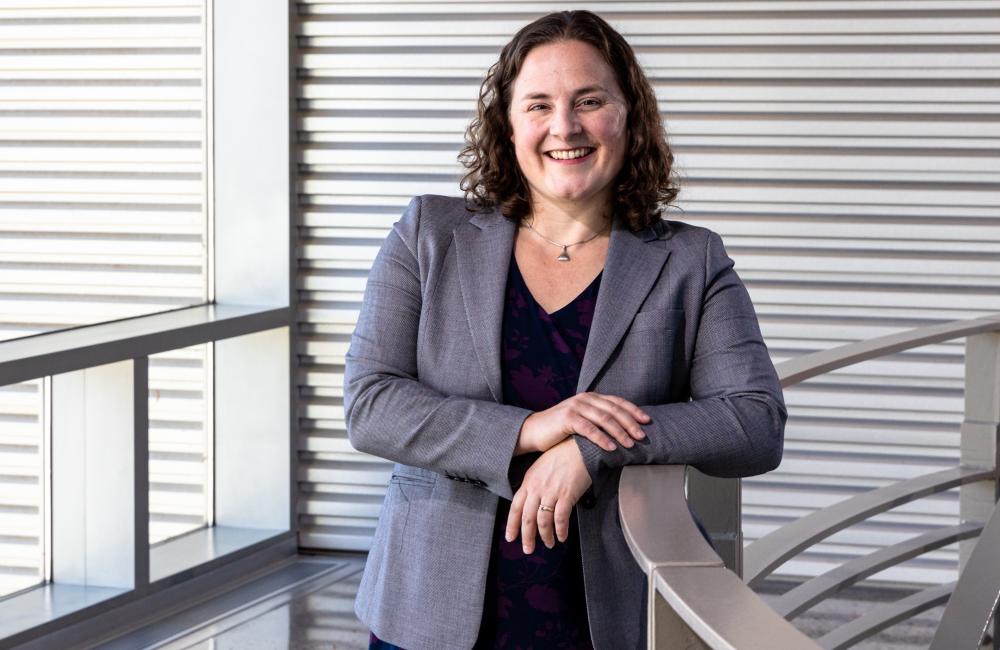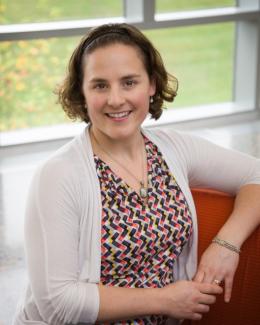Kate Page. Image credit: Carlos Jones
In 2019, nine ORNL early career researchers were recognized with prestigious awards from the White House and the Department of Energy—the Presidential Early Career Award for Scientists and Engineers, or PECASE, and the DOE Early Career Research Program Award. We sat down with these promising young scientists to talk about their backgrounds and current research.
PECASE winner Kate Page knows the world of neutron research from the inside out, having worked both as a scientist supporting users at neutron facilities at Oak Ridge and Los Alamos national laboratories and as an accomplished experimentalist in her own right.
“Winning a PECASE award felt like a great validation of the years of working with the user communities and conducting experiments at neutron sources in the U.S.,” said Page, formerly of ORNL’s Neutron Scattering Division and now an assistant professor in the University of Tennessee’s Materials Science and Engineering Department.
“I think I received the award because I have done a lot of work on both of those fronts.”
Page’s award cites the importance of her work in using “neutron total scattering data” to understand the structure of materials. This technique—which involves studying structure simultaneously on both large and extremely small scales—is helping scientists to understand some of the quirky properties of materials.
“Often what makes materials interesting and work the way they do is in the details of how they are ordered at the very smallest atomic level,” Page explained. “Picture a brick wall—from far away it might look pink, but if you’re close up, you can see the bricks are gray and red.
“Our technique allows us to see similar distinctions in materials at the atomic level. We tie those differences to material functionalities—like the way a battery charges and discharges or the way a material has resilience against radiation damage. These things are tied to how the materials are ordered at the atomic scale, and we can probe that with this technique.”
Page said that while she doesn’t think that her PECASE award will change the direction of her research, it reminds her that there’s more to scientific endeavor than focusing on your own career.
“I think it just reminded me that as you gain success in your career, it’s really important to think about how you can contribute to those around you and those you are interacting with,” she said.



